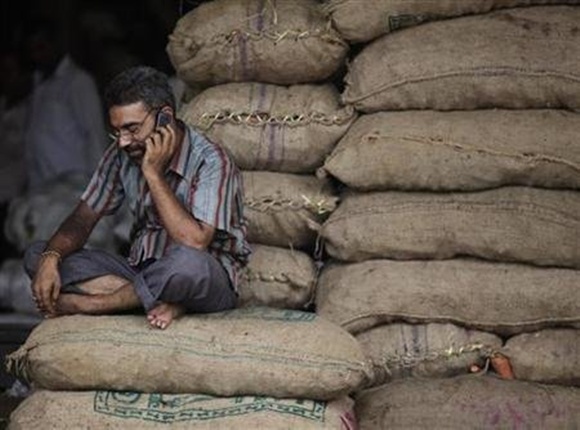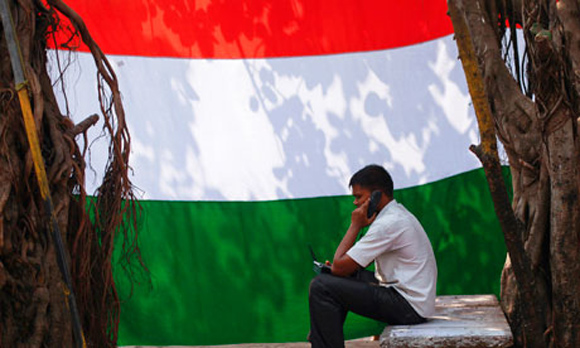 | « Back to article | Print this article |
Foreign money floods big telecom operators
Top telecom players had a good run with foreign investment this year.
More than Rs 17,000 crore (Rs 170 billion) of foreign money came into the sector.
The top telecom company, Bharti Airtel, sold five per cent stake in its company to Doha-based Qatar Foundation Endowment for $1.18 billion (Rs 7,080 crore).
British telecom major Vodafone, the parent company of Vodafone India, invested Rs 10,141 crore (Rs 101.41 billion) by buying out its Indian partners.
This came after foreign direct investment limit rules for telecom were eased.
Click NEXT to read further. . .
Foreign money floods big telecom operators
Idea, too, had conducted roadshows for its qualified institutional placement this year, to raise as much as Rs 3,750 crore (Rs 37.5 billion).
Its existing partner, Malaysian telecom company, Axiata has already said that it will invest in the company to keep up its stake.
Industry expects this will spur investments from large players.
While the top three players have to invest in the upcoming spectrum auction early next year, they will also spruce up their networks to make themselves ready for the next wave of telecom growth.
“The time is right for telecom companies to make investments if they have to stay ahead.
"Telecom companies have to be prepared because the No 1 and 2 places are severely contested by other challengers,” said Alok Shende, principal analyst and co-founder of Ascentius Consulting.
Airtel, which already launched its 4G services in four circles, is also spending on enhancing its network.
Click NEXT to read further. . .
Foreign money floods big telecom operators
The money raised can also help big players consolidate as merger and acquisition norms were relaxed by the government.
“Incumbents are doing well but all the other players are suffering.
“The time is right for big companies to take them over and push out the fringe players,” said Mahantesh Marilinga, senior research analyst at Finquest.
Analysts feel the price has to be right for acquisitions as operators that would come up for sale would be stressed assets with piling debts.
Late entrants into the sector had come in at huge premia and might even have to exit at a loss.
Shende says increased interest of foreign players is also because a lot of issues surrounding the telecom sector have been resolved.
Click NEXT to read further. . .
Foreign money floods big telecom operators
Many of 2008 entrants into the sector exited the race after the Supreme Court cancelled licences.
The few who remained by winning licences back, have ceased being pan-India players like Uninor, MTS and Videocon.
Vodafone has already talked about increasing rates, indicating that pricing power has come back to top players.
“The spectrum pricing that has come in is also in favour of the top players,” said Shende. The government approved the floor prices of spectrum which were greatly reduced from the auctions in 2012.
Newer opportunities have also started opening up for the sector, especially as many are seeing data growth.
“3G started growing as the uptake has been good. Enterprise market is growing, which is good for both Vodafone and Idea,” adds Shende.




